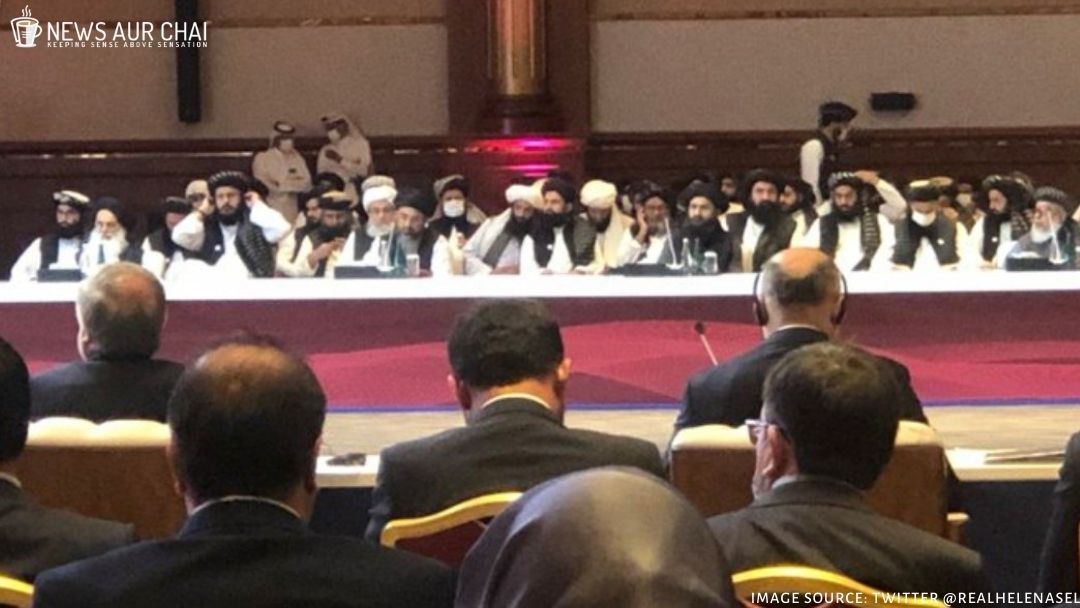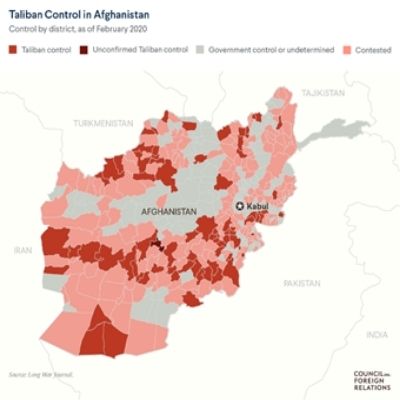
Amid the ongoing peace talk in Doha, the Taliban launched a wave of attacks on security checkpoints in southern Afghanistan overnight, killing a total of 28 Afghan policemen, according to reports. Wednesday’s killings come after at least 14 Afghan police and soldiers were killed overnight on Sunday.
The Afghan peace measure involves the proposals and dealings in an offer to end the continuous war in Afghanistan. Albeit irregular attempts have occurred since the war started in 2001, agreement and the peace development increased in 2018 amid talks between the Taliban, which is the principle guerilla bunch battling against the Afghanistan government and American soldiers. Around 20,000 soldiers of the United States, keep up a presence inside the nation to help the Afghanistan government.
The Taliban additionally assault regular citizen targets. A large portion of the talks have occurred in Doha, the capital of Qatar, where the organisation’s office is based. It is expected that a common agreement between the Taliban and the United States would be trailed by a partly American withdrawal and the beginning of intra-Afghan peace talks.
A ceasefire between the Taliban and the Afghanistan government appears to be holding for the third day after Eid-al-Adha. Afghanistan government has released 317 Taliban fighters, making a step towards peace. However, current happening and stricks will have an impact on the peace talks.
Looking at the ceasefire history is linked with the agreement between the Taliban and US peace agreement in march 2020.
The agreement was about several issues like:
- Troops withdrawal: The US to draw down to 8,600 troops in 135 days. All troops should be out within 14 months.
- Taliban Commitment: Not to threaten the security of the US and its allies.
- Sanctions Removal: UN and US sanctions on Taliban leaders to be removed within three months.
- Prisoners Release: 5,000 imprisoned Taliban fighters to be released, in return 1,000 Afghanistan army nationals to be released by the Taliban.
Progress on the deal
Close to 4,500 Taliban prisoners have been freed from Afghan custody; meanwhile, Taliban says it has released all 1,000 Afghan prisoners it had pledged. However, Parallel to this progress on agreement, Deadly Violence has continuously rocked Afghanistan since the deal. More than 3,500 Afghan soldiers have been killed in attacks by Taliban fighters.

Challenges
Afghanistan legislators quarrelled for force and battled to control enormous wraps of their own region. However, the Taliban didn’t perceive the authority of any of the chosen governments says, Khairullah Khairkhwa (Taliban official) to Aljazeera. Problem with Prisoner’s Swap is the Afghan government has said that it has “no authority” under the country’s constitution to release the remaining 400 Taliban prisoners because of their involvement in the serious crimes.
There are Issues with Intra-Afghan Dialogue, Abdullah Abdullah, (served as Chief Executive Officer of the Unity Government of the Islamic Republic of Afghanistan) is already criticizing Ashraf Ghani (President of Afghanistan) over his unfair means of winning the elections. Taliban itself is fragmented or divided internally. Sudden withdrawal of US may set a stage for the next round of civil war.
Impact on India:
India-Taliban relations have not been positive. Taliban coming to power may harm Indian interests largely. Afghanistan could become fertile ground for various anti-India terrorist outfits like Lashkar-e-Taiba or Jaish-e-Mohammed.
Indian stakes in Iran and Central Asia could be affected Adversely. New Delhi is a reliable ally of the Afghan government and has given 3 billion dollars to create a framework and develop business in Afghanistan since 2001. Its fundamental objectives are to limit Pakistan’s impact and keep Afghanistan from turning into a place of refuge for enemies of India aggressors. The Indian government didn’t back US endeavours to agree with the Taliban and couldn’t help contradicting legitimizing the gathering as a political actor.
What next?
NBC News has reported, a commander in Ghazni province says, Taliban do not support democracy, and they would follow the emirate system. However, Taliban members are divided over the question of democracy says reports of The International crisis group.
Only Religious scholars would pass their opinion to choose members for the supreme council. The supreme council would then formulate strategies to run the country as per Islamic Sharia, referring to Islamic law as derived from the Quran.
The Taliban have since shown they will embrace a less draconian position toward ladies and young women than previously yet have offered sparse subtleties.
The outcome of the peace talks, negotiation and how the constant violence by Taliban will affect the deal is yet unknown.





